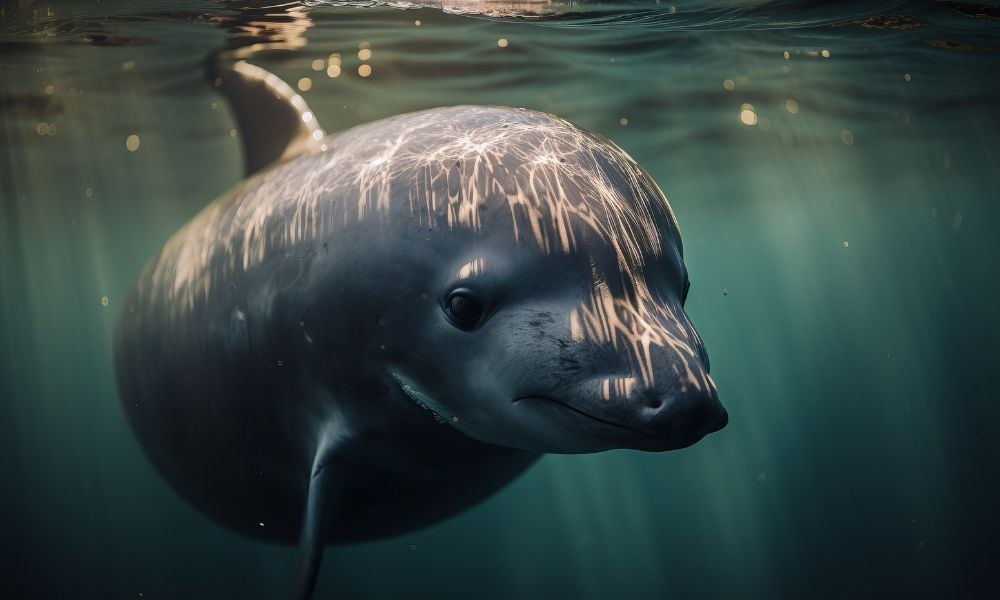The Mexican government and conservation group Sea Shepherd have signed a new agreement to expand a “no tolerance” zone for illegal fishing in order to protect critically endangered vaquitas – playful porpoises on the brink of extinction.
Scientists estimate that vaquita populations declined by 83 percent between 2015 and 2018 and that only about 10 vaquitas remain in the wild.
They’re typically victims of getting caught in illegal gill fishing nets used to catch totoaba, another endangered species whose bladder is prized in some Asian markets.
The agreement expands a so-called “no tolerance” zone for illegal fishing by 60 percent to the north and west, into an area with a high number of vaquita sightings, according to a May survey by Sea Shepherd.
The agreement also expands protections to include totoaba.
“This is a huge step forward,” said Sea Shepherd CEO Pritam Singh. “More protection means a better chance for survival for the vaquita and totoaba.”
The agreement was signed by Singh and Mexican Secretary of the Navy Admiral José Rafael Ojeda Durán and witnessed by Mexican Ambassador to the United States Esteban Moctezuma.
In August, the International Whaling Commission issued its first ever extinction alert for the vaquita — noting that the alert was needed to “voice extinction concerns for an increasing range of cetacean species and populations.”
While the agreement is welcome news, Mexico still must enforce its illegal fishing ban if vaquitas are to have any true chance at survival, experts from the Center for Biological Diversity said.
Previously this year, the U.S. Department of Interior’s secretary announced that Mexico had failed to halt its illegal wildlife trade. But the U.S. government stopped short of enacting trade sanctions — economic pressure that has proven to get quick results in the past.
If you haven’t already, please speak out for vaquitas today by signing our petition urging the US to do everything within its power to protect vaquitas if illegal fishing continues to go unchecked.







